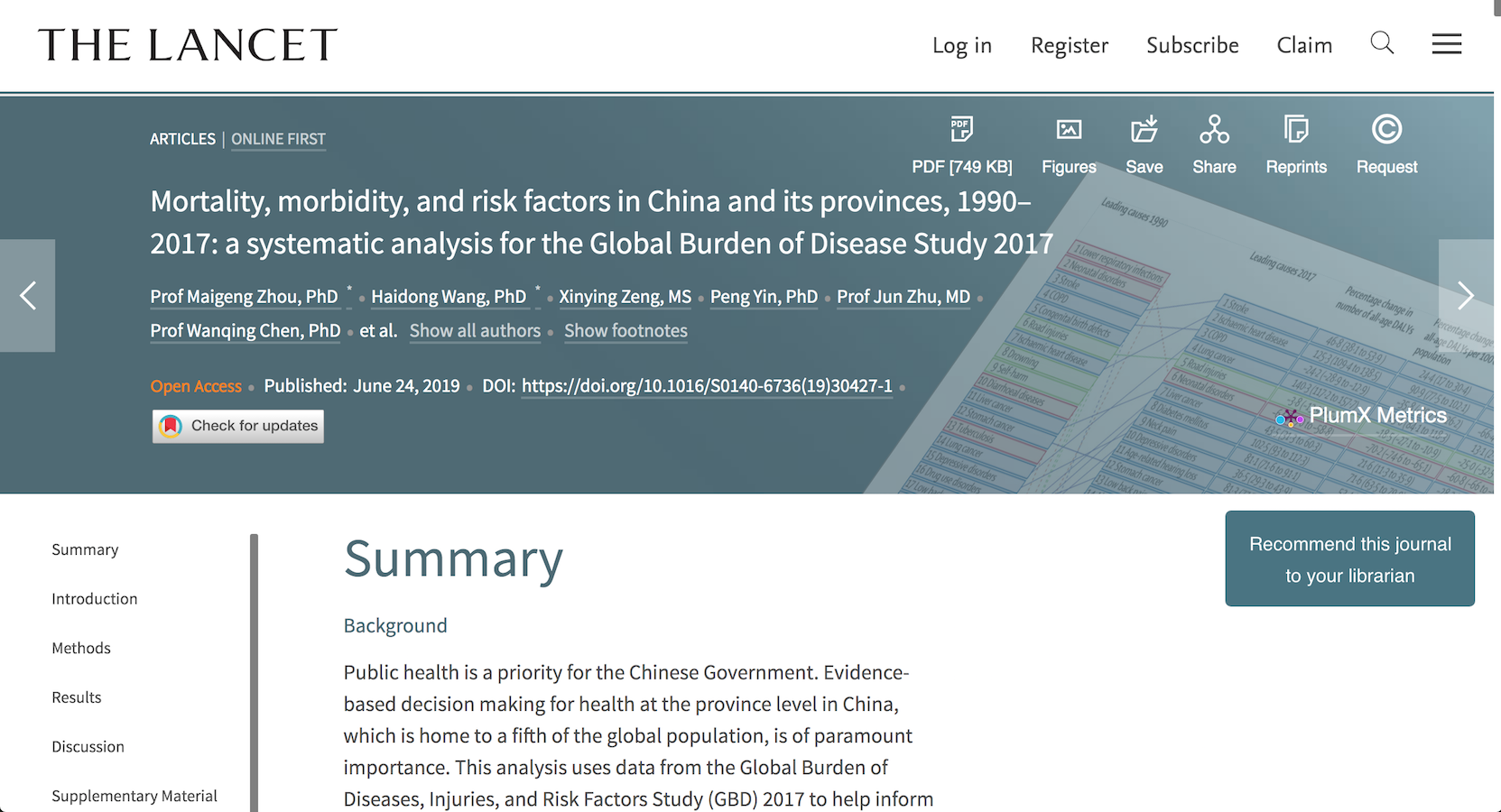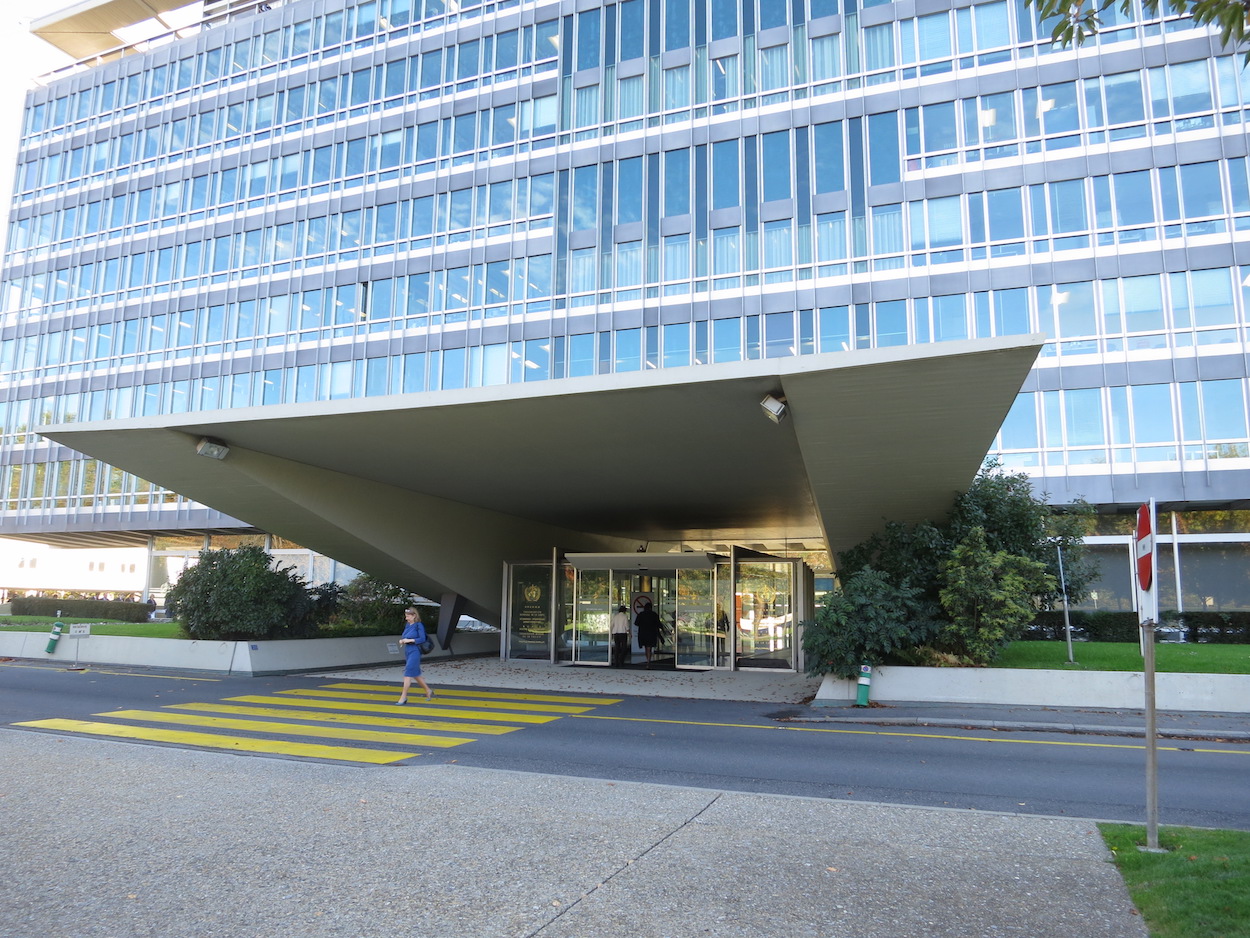by Hsien-Ho Lin, Yun-Chun Wu, Han-Hsi “Indy” Liu, and Brian Hioe
語言:
English
Photo Credit: US Mission Geneva/Public Domain
A GROUP OF scholars from China and the Institute of Health Metrics and Evaluation (IHME), a Seattle-based US research center, recently published a paper in The Lancet. However, the paper, which is titled, “Mortality, morbidity, and risk factors in China and its provinces, 1990–2017: a systematic analysis for the Global Burden of Disease Study 2017”, has serious scientific and ethical problems in order to serve its political purpose: to echo Chinese President Xi Jinping’s “China Dream” that “Taiwan is part of China” and “has to be reunifi[ed] under the one-China principle”.
In order to list Taiwan, a self-ruled, de facto independent sovereignty with a population of 23 million, as a province of China like thirty-three other province-level administrative units, the paper intentionally neglects that the national health system in Taiwan, including universal healthcare, database of health insurance and health surveillance, is totally independent and different from those in China. Furthermore, the paper used data from the Global Burden of Diseases, Injuries, and Risk Factors Study (GBD) 2017, a part of the Global Health Data Exchange database maintained by the IHME, which clearly showed Taiwan and China are two distinct countries under the category of Eastern Asia.
 The article in question
The article in question
In fact, the IHME receives all necessary data from its worldwide collaborators, including Taiwan’s Ministry of Health and Welfare (MOHW), under a mutual agreement that the IHME will inform the MOHW of any publications produced as a result of pooled analysis utilizing the MOHW’s data. Taiwan has not been notified by IHME, either before or after, of this publication.
Dr. Christopher Murray, the director of IHME, once said that the GBD study needs to be conducted at an independent research institute to prevent any political factors from interfering with research, or that research be used for other non-scientific purposes such as “raising money” or “raising awareness”. That is probably why the IHME used to categorize Taiwan as a country in its website and publication, and why a previous GBD study of China published in The Lancet by the same group did not include Taiwan.
The GBD study is a critical resource for people around the world, as to “provide a tool to quantify health loss from hundreds of diseases, injuries, and risk factors, so that health systems can be improved and disparities can be eliminated”. Its integrity and impartiality should be significant. The IHME should not allow any people to abuse it as a political tool and to undermine its essential value.
The later response by the authors of the IHME paper in The Lancet claims that the aim of the paper was to provide comparisons between the differing healthcare systems of Taiwan and China. While cross-country comparisons are admissible, it is factually incorrect as an approach to treat Taiwan as though data from Taiwan could be used as though Taiwan were a province of the People’s Republic of China (PRC), taking the approach that this is purely a domestic comparison. Taiwan has never been a part of the PRC, which was founded in 1949, and has a separate government, economy, and currency—all contributing factors to its highly differing healthcare system compared to China.
To this extent, while the authors of the IHME paper claim that they were simply following WHO standards and that their decision to view Taiwan as part of China was in this way not “political”, this should raise the issue of Taiwan’s exclusion from the WHO even as an observer, despite being classified by the organization as part of China, as a result of Chinese pressure within the organization. Taiwan is the 56th largest country in the world by population and had the 22nd largest nominal GDP in 2018 out of the world’s 200 countries. Taiwan’s exclusion from international health organizations has contributed to lacking responses from international health organizations to health crises in Taiwan, as observed in international responses to the 2003 SARS crisis or the outbreak of Africa Swine Fever in the past two years.
 WHO headquarters in Geneva. Photo credit: Thorkild Tylleskar/WikiCommons/CC
WHO headquarters in Geneva. Photo credit: Thorkild Tylleskar/WikiCommons/CC
This has caused Taiwan, despite its size, to become the victim of an unusual loophole in international health. It proves dangerous to exclude Taiwan from international health organizations to global health and, in this way, it is in fact to unduly politicize the issue to exclude Taiwan rather than vice-versa. It behooves The Lancet and other publications to break from the political inclusion of Taiwan as a part of China when the truth of the matter is that Taiwan has been excluded from international health organizations because of China and that this proves dangerous for what should be a non-political matter: global health.
Hsien-Ho Lin is a professor at the College of Public Health at the National Taiwan University College of Public Health.
Yun-Chun Wu is a graduate student at the National Taiwan University College of Public Health.
Han-Hsi “Indy” Liu is Ph. D candidate in the Institute of Public Health at National Yangming University, also licensed as an attorney-at-law in Taiwan.
Brian Hioe was one of the founding editors of New Bloom. He is a freelance writer on social movements and politics, and occasional translator.

